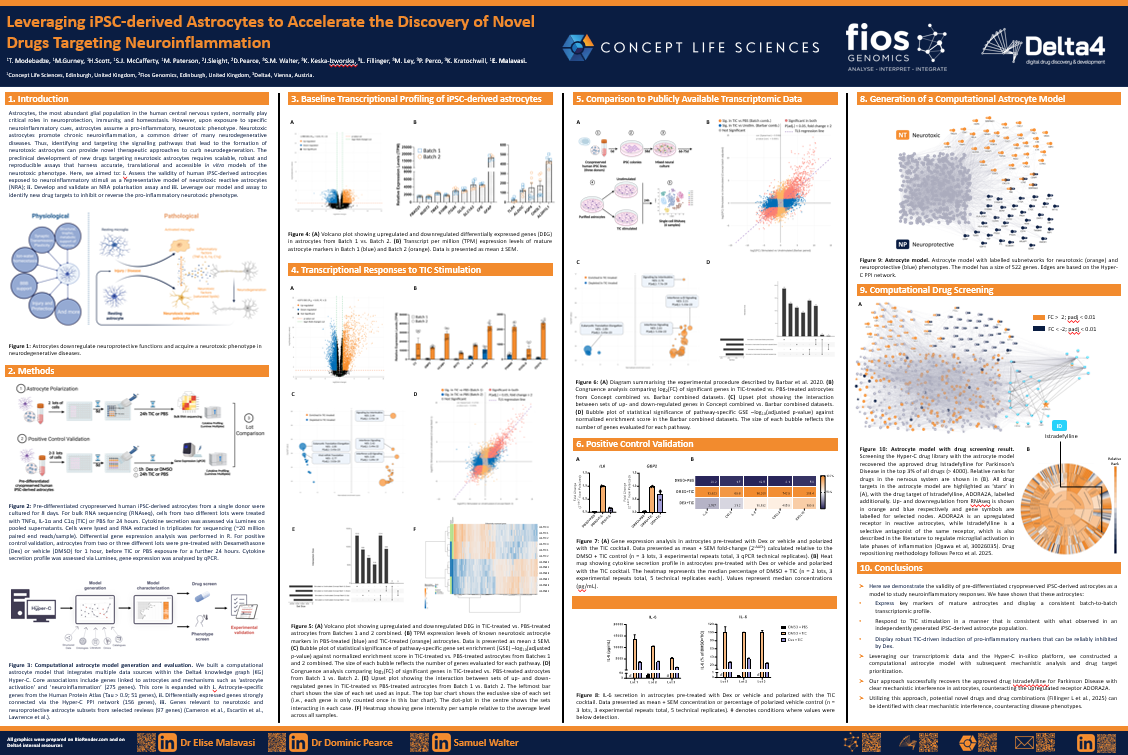
Poster
Leveraging iPSC-derived Astrocytes to Accelerate the Discovery of Novel Drugs Targeting Neuroinflammation

Astrocytes, the most abundant glial population in the human central nervous system, normally play critical roles in neuroprotection, immunity, and homeostasis. However, upon exposure to specific neuroinflammatory cues, astrocytes assume a pro-inflammatory, neurotoxic phenotype. Neurotoxic astrocytes promote chronic neuroinflammation, a common driver of many neurodegenerative diseases. Thus, identifying and targeting the signalling pathways that lead to the formation of neurotoxic astrocytes can provide novel therapeutic approaches to curb neurodegeneration. The preclinical development of new drugs targeting neurotoxic astrocytes requires scalable, robust and reproducible assays that harness accurate, translational and accessible invitro models of the neurotoxic phenotype. Here, we aimed to: i. Assess the validity of human iPSC-derived astrocytes exposed to neuroinflammatory stimuli as a representative model of neurotoxic reactive astrocytes (NRA); ii. Develop and validate an NRA polarisation assay and iii. Leverage our model and assay to identify new drug targets to inhibit or reverse the pro-inflammatory neurotoxic phenotype.
Alternatively, search our entire resource library here

